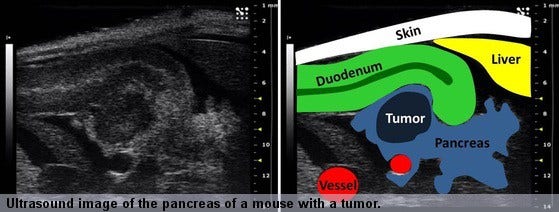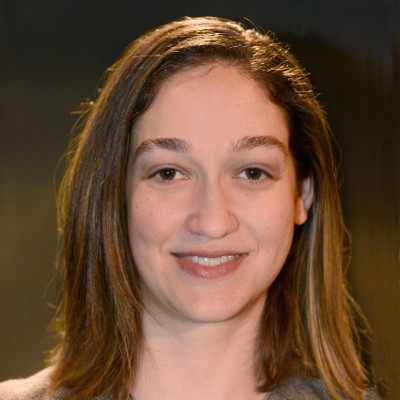Pancreatic Cancer Researcher Looks for Cure in ‘Mouse Hospital’
Pancreatic cancer is one of the hardest cancers to find and treat. But, researchers are working hard to figure out new ways to tackle the disease. Most recently, in September of this year, a new drug combination shown to increase pancreatic cancer survival became available.
Just three years ago, pancreatic cancer patients had essentially only one drug option, says Kenneth Olive, Ph.D., an American Cancer Society-funded researcher who heads a laboratory at Columbia University Medical Center. Today, Olive says, those facing pancreatic cancer have more choices.
Still, he notes, there is much more progress that needs to be made. “We want better options.”
Olive’s laboratory is searching for a cure for pancreatic cancer using a “Mouse Hospital” model, which allows Olive and his team to test treatments on mice in the same way people are treated. The lab uses the same structure and procedures as phase 1 and phase 2 clinical trials use in people -- down to having “mouse nurses” and “mouse radiologists” (nurses and radiologists who treat the mice), as well as using mouse-sized MRI and ultrasound machines to detect and track pancreatic tumors in mice.

This approach lets Olive “do exactly what a medical oncologist does with their patients and get a great deal of information about response to therapies.”
Searching for a Way to Get Pancreatic Cancer Cells to Die Off
DNA damage occurs in cells as part of normal everyday life, but certain proteins in cells, called DNA repair enzymes, fix this damage. The problem is that cancer cells also use these proteins to repair themselves -- meaning they can continue living and spreading.
But, if scientists can find a way to stop such proteins from doing this repair work in cancer cells, it would cause the cancer cells to die off.
One of these DNA repair enzymes is known as PARP. Olive is currently two years into a four-year American Cancer Society-funded project that aims to test the viability of using a PARP inhibitor -- or blocker -- to attack pancreatic cancer.
Still, even if a specific drug works against pancreatic cancer cells it first must penetrate the tumor -- which is unusually difficult for chemo drugs to do in pancreatic tumors. Thus, researchers including Olive are focusing on developing highly potent treatments that can do a better job infiltrating a pancreatic tumor.
A highly potent PARP-inhibitor, called niraparib, is the focus of Olive’s ACS-funded preclinical trial work. Olive has seen interesting early results and hopes to have some promising findings to share in the near future.
American Cancer Society news stories are copyrighted material and are not intended to be used as press releases. For reprint requests, please see our Content Usage Policy.




